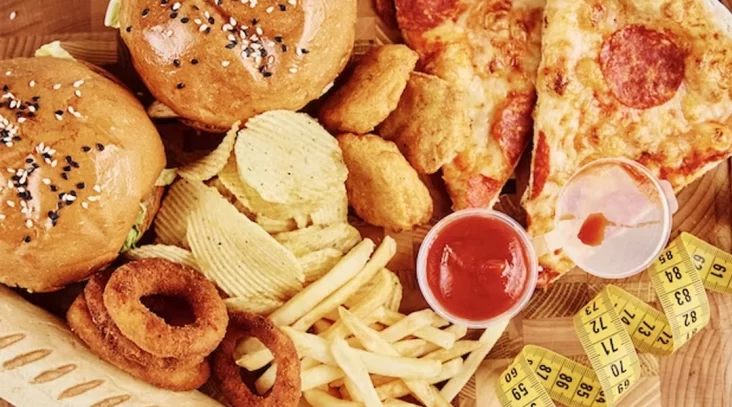High levels of low-density lipoprotein (LDL) cholesterol can contribute to the development of cardiovascular diseases. While cholesterol is essential for various bodily functions, an excess of LDL cholesterol, often termed “bad” cholesterol, can accumulate in blood vessels, forming plaques and potentially leading to atherosclerosis. Several dietary factors can influence LDL cholesterol levels. Here’s a more detailed exploration of foods that increase bad cholesterol (LDL) in your body:
Saturated and Trans Fats
- Fatty Meats: Processed meats and fatty cuts of beef, pork, and lamb are rich in saturated fats. Examples include bacon, sausage, and marbled steaks. These fats can elevate LDL cholesterol levels.
- Full-Fat Dairy Products: Whole milk, cheese, butter, and other full-fat dairy items contain saturated fats. Choosing low-fat or fat-free dairy options can be a healthier alternative.
- Poultry Skin: Chicken and turkey are lean protein sources, but consuming the skin adds saturated fat. Opt for skinless poultry to reduce saturated fat intake.
- Processed Meats: Hot dogs, sausages, and certain lunch meats often contain both saturated fats and harmful trans fats. Processed meats are also associated with other health risks.
Trans Fats:
- Partially Hydrogenated Oils: These oils are a major source of artificial trans fats. Found in many processed and packaged foods, including fried snacks, baked goods, and margarine, trans fats raise LDL cholesterol and lower high-density lipoprotein (HDL) cholesterol, making them particularly detrimental to heart health.
Fast Food and Fried Foods:
- French Fries and Fried Chicken: Deep-fried foods are often cooked in oils high in trans fats. The process of deep frying can turn initially healthy oils into unhealthy forms, contributing to increased LDL cholesterol.
- Commercially Baked Goods: Many commercially produced baked goods, such as cookies, cakes, pastries, and doughnuts, often contain trans fats and saturated fats from sources like butter and shortening.
Palm and Coconut Oil:
- Palm Oil: Widely used in processed foods, palm oil is high in saturated fats. While it’s plant-based, its impact on cholesterol levels is similar to that of animal-based saturated fats.
- Coconut Oil: Despite its popularity, coconut oil is high in saturated fats. While it may have some health benefits, moderation is crucial to avoid adverse effects on cholesterol levels.
Egg Yolks:
- Eggs: While eggs are a nutritious food, their yolks contain cholesterol. However, for many people, dietary cholesterol has a smaller impact on blood cholesterol levels than saturated and trans fats. Moderation is key, and some individuals can include eggs as part of a heart-healthy diet.
Snack Foods:
- Packaged Snacks: Many snacks, such as potato chips, crackers, and commercially produced popcorn, may contain unhealthy fats. Check labels for saturated and trans fat content.
Butter and Lard:
- Butter: High in saturated fats, butter should be used in moderation. Consider healthier alternatives like olive oil or avocado spread.
- Lard: Used in certain cooking and baking processes, lard is rich in saturated fats. Healthier oils can be substituted in many recipes.
Shellfish and Organ Meats:
- Shellfish: While seafood is generally healthy, some shellfish, such as shrimp and lobster, are higher in cholesterol. However, they are low in saturated fats, and their impact on cholesterol levels may be less significant.
- Organ Meats: Liver and other organ meats are high in cholesterol and saturated fats. Limiting their consumption is advisable for those concerned about cholesterol levels.
High-Fat Dairy Alternatives:
- Coconut Milk and Cream: These dairy alternatives are high in saturated fats. Opt for unsweetened almond or soy milk as heart-healthy substitutes.
It’s essential to note that individual responses to dietary cholesterol can vary, and genetics play a role in how the body processes fats. Additionally, focusing on overall dietary patterns and lifestyle choices, such as regular exercise, can contribute to better heart health. Consulting with a healthcare professional or a registered dietitian can provide personalized guidance on maintaining healthy cholesterol levels through dietary choices.


One Comment
Pingback: Foods That Increase Bad Cholesterol (LDL) in Your Body – Sujata Birla Hospital